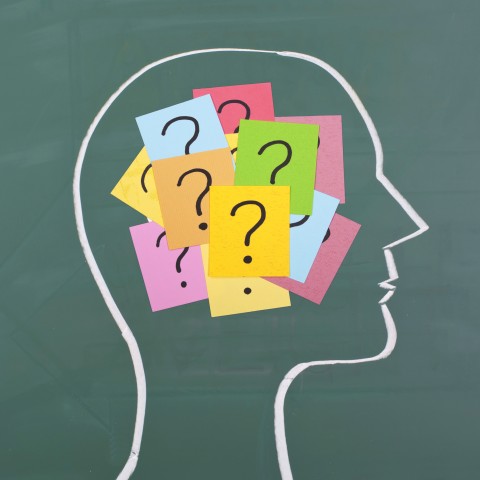
At some point in your Spanish-learning journey, you’ll probably want to test your mettle and see how far you’ve come. Few things are as motivating as tangible progress, after all! And depending on your reasons for learning Spanish, becoming certified in your Spanish proficiency may be necessary to achieve your goals.
That’s where the DELE Spanish test comes in.
In this article, we’ll explain everything about the DELE, one of the official Spanish language exams: what it is, how to sign up, and why you should care. You’ll also learn all the details about the six possible DELE Spanish exam levels and how to identify yours.

For those of you who don’t know much about DELE, this article will inform you about everything you need to know. For those of you who have decided to take the exam, this article is also designed to help you prepare for the big day. In particular, we’ll give you an in-depth look at each of the four sections of the exam and offer you some tips and techniques to succeed!
 Table of Contents
Table of Contents
- What is the Spanish DELE Exam?
- Introduction to the DELE Exam
- DELE A1
- DELE A2
- DELE B1
- DELE B2
- DELE C1
- DELE C2
- Tips on Preparing for DELE
- Conclusion
1. What is the Spanish DELE Exam?
DELE stands for Diploma de Español como Lengua Extranjera, or in English, “Spanish as a Foreign Language Diploma.”
This is an official diploma that certifies various levels of proficiency in Spanish.
This certificate is issued by the Instituto Cervantes, the official representative of the Ministerio de Educación y Formación Profesional de España. El Instituto Cervantes is an official Spanish institution recognized worldwide, which makes the DELE the best choice for validating your Spanish proficiency.
This exam is designed by following the Common European Framework of References for Languages. So, it’s made and designed by the standards of the European Union.

1- Why Should You Take the DELE Exam?
There are many possible reasons why you would want to pass a DELE:
- If you’re considering entering into a Spanish university
- If you’re planning to apply for a Spanish permit
- If you want to find a job in Spain or any other Spanish-speaking country
- If you want to request a Spanish citizenship
Whatever your reasons, it’s good to know that the DELE is:
- Valid for a lifetime (it does not have an expiration date)
- Internationally recognized
- In accordance with the CEFR Common European Framework, for levels A1 through C2
Yes! The Spanish DELE certificates cover all the levels, from A1 to C2. It’s a highly recommended certificate if you want to access the professional and academic world of a Spanish-speaking country.
In Spain, DELE certificates are recognized by institutions and national organizations such as the Ministry of Justice of Spain, Ministry of Health of Spain, and some general State Administration and public bodies.
Generally, it’s recommended that a Spanish student aims to pass the DELE Spanish exam at the B2 level. This shows that the student can interact with natives, have a clear argument, and understand the gist of what they read and hear. Further, many universities and official institutions in Spanish-speaking countries ask that candidates attain the B2 certification.
With the basics out of the way, let’s move on to our section on DELE preparation and what to expect.

2- What Do the DELE Exams Look Like?
The DELE exam consists of four distinct sections:
1. Reading (Compresión de lectura)
2. Writing (Expresión e interacción escrita)
3. Listening (Comprensión auditiva)
4. Speaking (Expresión e interacción oral)
Depending on which level you’re testing for, you may be allotted a different amount of time per section.
Keep reading to learn more about each section!
3- Additional DELE Information
Before we move forward, we’re going to cover a few key points that you should know before you start preparing!
A- Subjects
The DELE exams tend to cover four key subjects:
- Personal
- Public
- Education
- Professional
Thus, many of the questions, texts, and listening materials will have something to do with one of those key areas. The idea is to test your Spanish proficiency in a variety of contexts, depending on your goals and which level you’re testing for.
B- Who Can Take DELE?
You may be glad to hear that there are no restrictions concerning who can take the exam! All of the age and nationality restrictions that were previously in place have been taken down.
On a side note, if you’re younger than sixteen years old, you’ll need to have a parent or guardian help you register.
You can find some more information about who can take the test on this official web page.
C- Where Can You Sign Up & Take the Exam?
There are testing centers for the DELE exam all over the globe. To find your nearest testing center, you can check on the official web page and reach out to the location to register.
If you’re in Spain, you can register from the Instituto Cervantes web page directly. But if you’re testing elsewhere, you must register with your nearest location.
2. Introduction to the DELE Exam
In order to prepare for the DELE, you need to know which level you’re at and what level you’re aiming for.
Why?
Well, the level you decide to test for will determine a number of factors concerning how you should prepare. For example, different DELE levels may give test-takers different amounts of time per section or cover specific topics not included in other levels.
Be reasonable with your goals, though. It would be very difficult to push yourself from the A1 level (beginner) to the C1 level (advanced), unless you give yourself six months or more to study. Anything can be achieved if you study hard, though we do recommend you keep your goals doable for you and your lifestyle!
Now we’ll provide all the information and details you need to pass the Spanish DELE exam.
| Level | Description | You should: |
| A1 DELE A1 A1 – for young learners (candidates eleven to seventeen years old) | Beginner | Understand and use familiar everyday Spanish expressions as well as simple statements about practical needs Introduce yourself to someone in Spanish Ask someone questions in Spanish Answer similar types of questions Have very basic conversations if the other person is talking slowly and deliberately articulating |
| A2 DELE A2 | Lower-intermediate | Understand and be able to use daily Spanish expressions relevant to your surroundings, like personal information, shopping phrases, or interesting locations Address questions about your immediate needs You should be able to communicate about usual or known aspects of your past or your environment |
| B1 DELE B1 A2/B1 for young learners (candidates eleven to seventeen years old) The candidates who pass will receive one of the two certificates, depending on their results. | Intermediate | Understand main topics like studies, work, or daily life when you’re listening to or reading texts Be prepared to handle situations that take place in these familiar contexts Write simple but coherent texts on familiar topics like experiences, plans, wishes, or opinions |
| B2 DELE B2 | Upper-intermediate | Understand abstract or technical situations, whether written or spoken, as well as accents and variations of the Spanish language Speak in Spanish fluently and naturally without hesitation Debate when you write about several topics and be capable of defending your opinion |
| C1 DELE C1 | Advanced | Understand variations of the Spanish language, and recognize variations, intentions, and meanings Express yourself fluently, spontaneously, and without any apparent effort Always find the adequate expression for every situation and context Write very difficult texts effortlessly and be able to build high-quality texts with a coherent structure |
| C2 DELE C2 | Proficient | Handle any situation and understand everything, written or spoken, regardless of how complex, abstract, or unfamiliar it is, or what variety of Spanish is used Express yourself spontaneously, fluently, and with exceptional semantic and grammatical precision in every context |
The content of your DELE exam depends on your level, so it’s important that you become familiar with each of the four exam sections based on level. They all follow the structure given above, but the time allotments and exercises may change.

Tip: Remember to do the sections you’re good at first, and focus on the more difficult ones last so you can spend more time on those sections. That way, you don’t lose your score!
3. DELE A1
Reading test
For your reading test, you should be able to understand common Spanish words and names, as well as easy phrases such as those on street signs or in catalogues.
- Duration: 45 min
- Sections: 4
- Exercises: 25
Listening test
You should be able to recognize basic Spanish words and expressions that are used in everyday interactions and in contexts that are familiar to you.
- Duration: 20 min
- Sections: 4
- Exercises: 25
Speaking test
You should be able to use easy Spanish expressions and sentences to describe where you live and the people you know.
- Duration: 15 min
- Sections: 4
Writing test
For the writing portion, you should be able to write simple phrases and sentences, such as birthday wishes or a postcard.
- Duration: 25 min
- Sections: 2
- This reading part of the DELE exams takes the 25 %
4. DELE A2
Reading test
If you’re planning to take the DELE A2, you should be capable of reading and understanding short and easy Spanish texts.
- Duration: 60 min
- Sections: 5
- Exercises: 30
Listening test
For the listening test, you should understand Spanish sentences and Spanish vocabulary about everyday topics.
- Duration: 35 min
- Sections: 5
- Exercises: 30
Speaking test
You should be able to communicate in a simple fashion about daily things and activities. You should be able to have short social conversations in Spanish.
- Duration: 15 min
- Sections: 4
Writing test
You should be able to write basic Spanish notes and messages that relate to your immediate needs.
- Duration: 50 min
- Exercises: 30

5. DELE B1
Reading test
You should be able to understand ideas and concepts used in everyday life, such as words and phrases in Spanish TV shows.
- Duration: 40 min
- Sections: 5
- Exercises: 30
Listening test
If you’re taking the DELE B2, you should understand texts written in everyday Spanish language. You should also be able to grasp the description of events, feelings, and wishes in personal letters.
- Duration: 70 min
- Sections: 5
- Exercises: 30
Speaking test
You should be able to handle almost all situations when traveling to a Spanish-speaking country. In addition, you should be able to spontaneously take part in conversations about familiar and daily topics.
- Duration: 15 min
- Sections: 4
Writing test
You should be able to write easy and well-connected Spanish texts about familiar topics and personal interests. You should also be able to write personal letters describing any of your experiences and impressions.
- Duration: 60 min
- Sections: 2
6. DELE B2
Reading test
For the DELE B2 reading test, you should be capable of understanding articles on current issues as well as contemporary literature in Spanish.
- Duration: 70 min
- Sections: 4
- Exercises: 36
Listening test
You should be able to understand speeches or conferences, including complex chains of thought. In addition, you should be able to follow TV news and understand most movies in standard Spanish.
- Duration: 40 min
- Sections: 5
- Exercises: 30
Writing test
For the writing test, you should be able to write clear Spanish texts about a variety of topics and elaborate on a specific point of view.
- Duration: 80 min
- Sections: 2
Speaking test
For the speaking test in Spanish, you should be fluent and spontaneous when having a conversation with natives.
Oh, yes! This level is quite a lot harder!
You should also be able to elaborate and defend your point of view in debates.
- Duration: 80 min
- Sections: 2
7. DELE C1
Reading test
For the DELE C1 reading test, you should be able to read long and complex Spanish texts with different literary styles, as well as technical instructions.
- Duration: 90 min
- Sections: 5
- Exercises: 40
Listening test
For the listening portion, you should be able to understand speech, including dialogue in TV shows and movies, without effort. So, try some Netflix in Spanish and see if this DELE exam is for you.
- Duration: 50 min
- Sections: 4
- Exercises: 30
Writing test
For the writing test, you should be able to write clear Spanish, especially for things such as informative reports or essays for a Spanish university.
- Duration: 80 min
- Sections: 2
Speaking test
If you know how to write an essay in Spanish, the speaking test should be pretty easy for you.
You should be able to express yourself fluently and without looking for the right expression. We recommend that if you’re at this level, you visit a Spanish-speaking country to practice before taking your DELE exam!
- Duration: 20 min
- Sections: 3
8. DELE C2
This test is for masters, but if your Spanish is great and you need to take the DELE, this is the level for you.
Combined Skills: Reading + Listening Test
You should be able to read all forms of written Spanish with ease, even when the topics are abstract and complex (such as manuals or Spanish literature).
- Duration: 105 min
- Sections: 6
- Exercises: 52
Combined Skills: Listening + Writing + Reading Test
You should be able to read all forms of written Spanish, including literature.
- Duration: 150 min
- Sections: 3
Combined Skills: Speaking + Reading Test
For this section of the test, you should be able to read all forms of written Spanish. In addition, you should be able to introduce yourself, have a conversation about any subject,and talk about things like newspaper headlines.
- Duration: 20 min
- Sections: 3
Good luck!
9. Tips on Preparing for DELE
Here, we’ll share some useful tips on how to prepare for and pass your Spanish exam.
1- Book the exams first.
We recommend that you book the exam first and give yourself enough time to prepare. That way, you don’t procrastinate; you know you have to study, so you’ll set yourself to it.
If you just study for the sake of it and leave the rest for when you feel prepared, believe me, you will never feel prepared.
To prepare, do as many practice tests as you can. Time yourself, do the parts you’re good at first, and do them fast so you can spend more time on the parts you’re not as good at. You can find mock exams on the Instituto Cervantes web page.
2- Work on your weaker areas.
Let’s say that while you’re preparing for your exam, you discover that your reading skills aren’t that good, but your listening skills are great. Well, work more on your reading. By spending more time on your weaker areas to begin with, you’re allowing yourself to study and improve while you still have the focus and motivation to do so! You can always brush up on your stronger areas afterward.

3- Practice managing your time.
Have you ever done poorly on a test that you studied hard for? You knew the information and had the skills, but you failed to complete the test on time…
You can avoid this situation by learning how to manage your test-taking time now. A great way to do this is by timing yourself while taking mock tests, and figuring out how to improve your times.
10. Conclusion
You were lucky enough to have found SpanishPod101.com, the best place online to learn Spanish vocabulary and grammar, get expert tips, and practice everything you’re learning.
If you’re a beginner, there are a few blog posts you may want to check out: How to Say Hello in Spanish, How to Say Thank You in Spanish, and How to Say I Love You in Spanish.These articles will provide you with basic phrases for some of life’s most common interactions and situations!
Is your Spanish a bit more advanced? Then see our article about Spanish Travel Phrases to prepare for your trip to a Spanish-speaking country. It can also help you get a great score on your DELE Spanish exam.
Of course, if you’re a master of the Spanish language, then you should check out this post and share it now on social media in perfect Spanish. (And while you’re at it, share how much you’re going to kill it on your DELE exam!)
Before you go, let us know in the comments if you have any more questions about the DELE exam that we didn’t cover here. We’ll do our best to help you out!
Happy Spanish learning!










